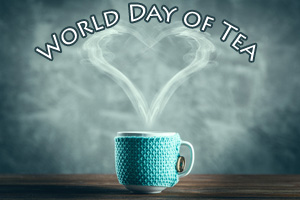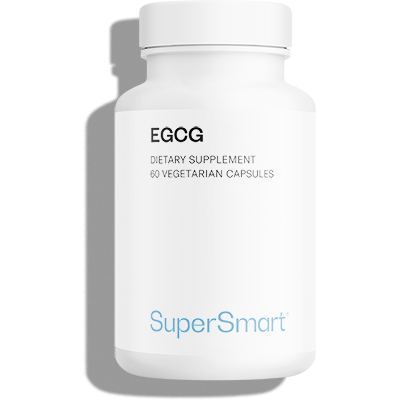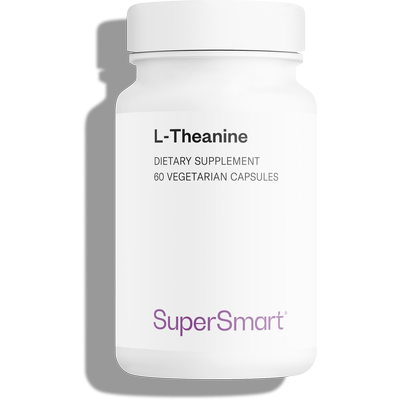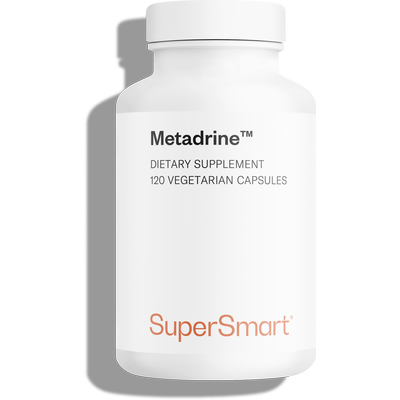12-12-2017
Getting the maximum benefit from tea: the secret of theanine
 15 December is International Tea Day, celebrating what is the second most consumed drink in the world. Tea has a remarkable history, from its incorporation into traditional Chinese medicine several hundred years BC, to its huge commercial success at the start of the colonial period. Today, it is more popular than coffee and scientific studies are increasingly confirming what tea-drinkers have always known: it is an unbeatable relaxant.
15 December is International Tea Day, celebrating what is the second most consumed drink in the world. Tea has a remarkable history, from its incorporation into traditional Chinese medicine several hundred years BC, to its huge commercial success at the start of the colonial period. Today, it is more popular than coffee and scientific studies are increasingly confirming what tea-drinkers have always known: it is an unbeatable relaxant. Drinking large amounts of tea is not, however, to be recommended for those suffering from stress or anxiety. This is because tea leaves contain caffeine, sometimes called theine although it is the same molecule as that found abundantly in coffee. So how can a drink be relaxing and stimulating at the same time? Paradoxically, in addition to caffeine, tea contains powerful antioxidants called catechins, (the main one being EGCG), and theanine, the active ingredient responsible for relaxing effects on the nervous system1-3.
How does theanine produce its relaxant effects?
When we drink a cup of tea, L-theanine molecules are quickly absorbed in intestinal microvilli before crossing the blood-brain barrier to reach tissues in the brain. There they act in two very different ways. Firstly, they activate production of alpha waves, inducing the same sort of deep relaxation as meditation. Secondly, they stimulate production of neurotransmitters such as GABA, dopamine and serotonin which play a role in the body’s response to a stressful event. These two mechanisms are thus responsible for theanine’s relaxing effects, which can produce feelings of well-being, decreased blood pressure (the opposite effect of caffeine), and lower levels of cortisol, the hormone involved in chronic stress.
So to really get the most out of tea’s relaxing effects, some people have decided to take advantage of theanine which is now extracted naturally and concentrated in supplements such as Suntheanine. Its appeal is all the greater since anxiolytic drugs have received widespread criticism, while a study conducted by the consumer association 60 Millions de consommateurs revealed in November that all 16 of the black teas and 10 of the green teas they tested contained pesticides, with as many as 17 pesticides per tea bag in some cases. Such levels are possibly due to intensive tea production methods and the fact that the tea leaves are not washed after being picked to preserve their flavour.
What about the catechins?
Those looking to benefit specifically from catechins can also do so by taking the supplement Sunphenon®. This is not aimed at those suffering from anxiety but at anyone wishing to improve their health generally. Catechins in tea, especially those in green tea which is less oxidised, have anti-inflammatory, anti-arthritic, anti-carcinogenic, anti-bacterial, anti-fungal, anti-viral, cholesterol-lowering and hypolipidaemic properties …
References
1. Gray MA, Oliver C, Liley DT, Harrison BJ, Bartholomeusz CF, Phan KL, Nathan PJ. The acute effects of L-theanine in comparison with alprazolam on anticipatory anxiety in humans. LHum Psychopharmacol. 2004 Oct;19(7):457-65.
2. Nobre AC, Rao A, Owen GN. L-theanine, a natural constituent in tea, and its effect on mental state. Asia Pac J Clin Nutr. 2008;17 Suppl 1:167-8.
3. Kimura K, Ozeki M, Juneja LR, Ohira H. L-Theanine reduces psychological and physiological stress responses. Biol Psychol. 2007 Jan;74(1):39-45.
Order the nutrients mentioned in this article

Green tea EGCG supplement for fighting oxidative stress and excess fat, two factors in the ageing process
www.supersmart.comFurther reading
02-02-2015
L-tryptophan is one of eight essential amino acids in the human diet. It is the metabolic precursor of serotonin, melatonin and niacin. It was discovered...
Read more12-11-2013
The European Union has finally authorised a natural sleep aid: melatonin. If you ask me, those responsible for banning this natural substance for so many...
Read more29-03-2017
Do you find it difficult to get to sleep? Do you often wake up in the middle of the night? And then have trouble falling...
Read more© 1997-2025 Fondation pour le Libre Choix
All rights reserved
All rights reserved
Free
Thank you for visiting our site. Before you go
REGISTER WITHClub SuperSmart
And take advantage
of exclusive benefits:
of exclusive benefits:
- Free: our weekly science-based newsletter "Nutranews"
- Special offers for club members only



















